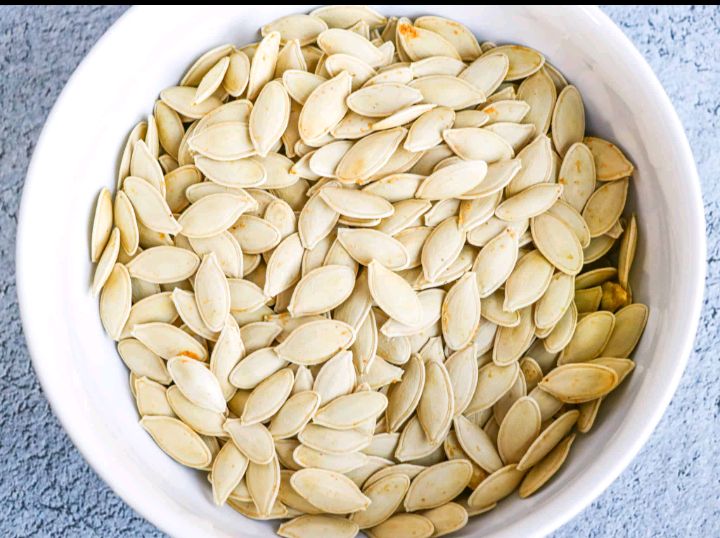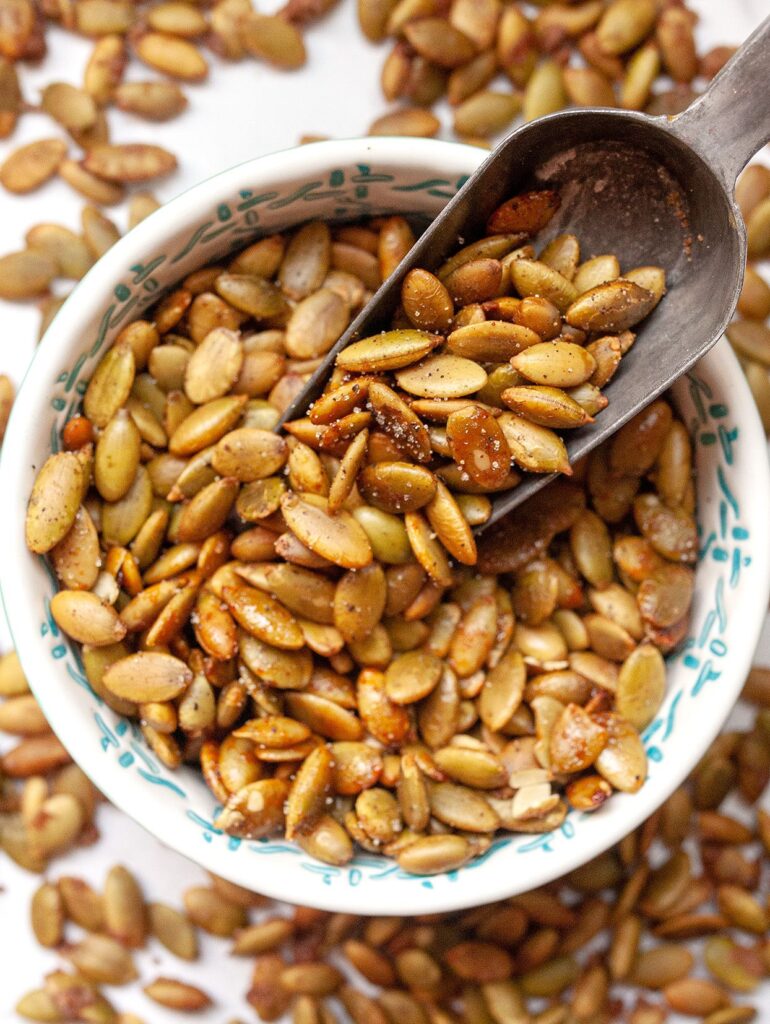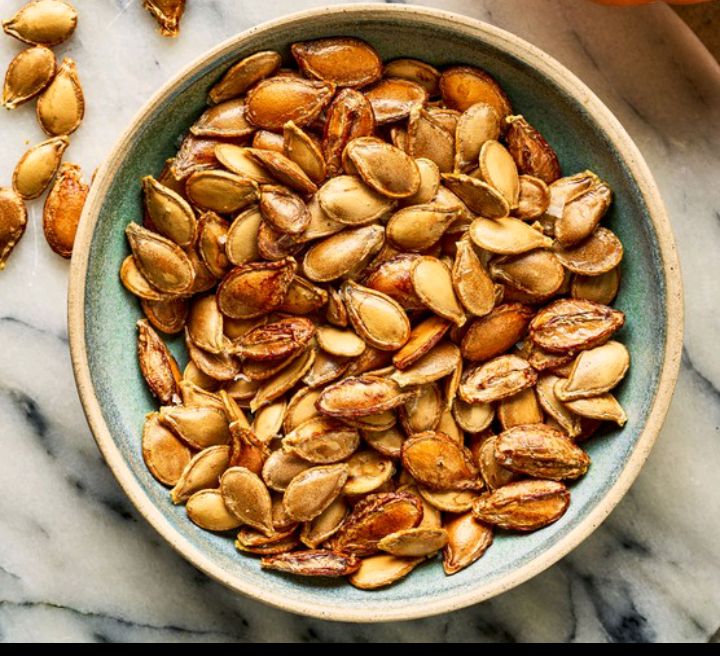Pumpkin seeds, often referred to as “pepitas” (Spanish for “little seed of squash”), are rich in antioxidants, healthy fats, and essential minerals.

Pumpkin seeds are consumed in many different parts of the world. Consuming pumpkin seeds may offer several health benefits, including improved bone health, enhanced sexual wellbeing, and a strengthened immune system.
Here, we will explore the nutritional content of pumpkin seeds, their potential health benefits, ways to incorporate them into your diet, and any associated risks.
Benefits
Nutritional Powerhouse
Pumpkin seeds are an excellent source of healthy fats, particularly polyunsaturated fatty acids, magnesium, and antioxidants like selenium and beta carotene.
They are also high in iron, with one cup providing approximately 9.52 milligrams (mg)—a significant portion of the recommended daily allowance (RDA) of 18 mg for premenopausal women and 8 mg for men and postmenopausal women.

Other key nutrients include:-
Zinc, Phosphorus, Manganese, Protein and Fiber
Bone Health
Rich in magnesium, pumpkin seeds play a vital role in bone formation. Higher magnesium intake is linked to increased bone density, while low magnesium levels are associated with a higher risk of osteoporosis, particularly in postmenopausal women.
Weight Loss and Digestion
A one-ounce serving of pumpkin seeds contains 1.8 grams of fiber, contributing to about 6% of the recommended daily value. A fiber-rich diet can help:-
Maintain a healthy weight by promoting a feeling of fullness
Improve digestion
Manage blood sugar levels
Immune System Support
Pumpkin seeds are high in vitamin E and other antioxidants, which help strengthen the immune system and maintain healthy blood vessels.

Sleep Aid
Containing the amino acid tryptophan, pumpkin seeds may help prevent insomnia. A one-ounce serving has about 0.16 grams of tryptophan, which the body converts into serotonin and melatonin—hormones that promote relaxation and sleep. Research suggests that consuming 1 gram or more of tryptophan before bed can enhance sleep quality.
Sexual and Prostate Health
Traditionally viewed as an aphrodisiac, pumpkin seeds are also beneficial for male fertility due to their high zinc content. A 2018 study indicated that zinc can improve both sperm quality and quantity. Additionally, a 2019 study found that pumpkin seed extract may aid individuals with benign prostatic hyperplasia, a condition that can cause urinary difficulties.
Uses and Dietary Tips
Pumpkin seeds can be enjoyed as a standalone snack or added to various dishes for extra flavor and crunch. Consider these ideas:
Sprinkle on salads
Mix into homemade granola with nuts and dried fruit
Roast with olive oil and seasoning
Use in pumpkin seed butter
Risks
While pumpkin seeds are nutritious, they are high in fat and can become rancid if not stored properly. Keep them in a cool, dark, dry place, or store them in the fridge or freezer for extended freshness. Additionally, supervise young children when consuming nuts or seeds to prevent choking.
Ultimately, a balanced diet is key to disease prevention and overall health. It’s better to focus on a variety of foods rather than concentrating on individual items.
Pumpkin seeds are a versatile and nutritious addition to meals, offering numerous health benefits. Proper storage is essential to maintain their quality, and caution should be exercised when serving them to young children.




